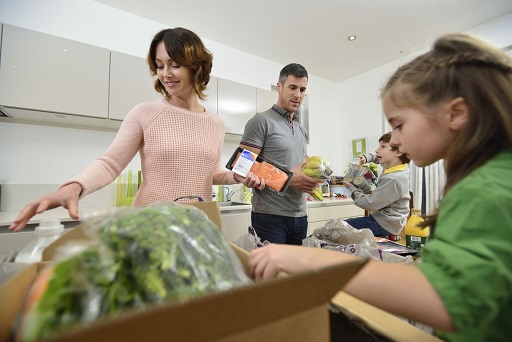Waitrose is rolling out a mobile app that will help it assess the “emotional well-being” of its farm animals.
The app aims to manage and improve opportunities animals have to “experience a good and enriching life”, said the supermarket chain.
Developed by animal behavioural scientists at Scotland’s Rural College (SRUC) and licensed by Waitrose for trial and development over two years, the app is designed to help field teams better understand, recognise and record emotionally expressive behaviour that contributes to an animal’s quality of life.
The technology allows animal welfare inspectors to log different expressive qualities of behaviour, such as “being relaxed, tense, playful or anxious”.
“This will help field teams assessing Waitrose farms develop their skills and help them describe and quantify the different expressions they observe when looking at their animals,” said Waitrose.
Initially, the app will be used to monitor dairy cows, veal calves, pigs, laying hens, broiler chickens and ducks.
App creator professor Francoise Wemelsfelder said: “Good physical health is vital for good welfare but there is clear consensus among the scientific animal welfare community that factors such as enjoyment, contentment and positive excitement play an equally vital role in ensuring that an animal has a good life.
“We believe fundamentally that animals are not simply production systems to be managed - they are sentient creatures that must be cared for.”
James Bailey, executive director at Waitrose, said: “This is a huge development for the industry as it's the first time any retailer has explored welfare measures based on the concept of an animal’s freedom to express positive emotions.
“For the UK to continue its position as a leader in farming standards it’s critical that we recognise farm animals as creatures capable of experiencing a range of emotions and positive experiences.”
The app for iOS and Android provides farmers, field staff, field managers and farm assessors with a list of around 20 key descriptive terms bespoke to each species, to be scored accordingly.
When they are done scoring, assessors submit the data to a database which can show how a farm just viewed scores against others.
Latest News
-
Just Eat Takeaway.com launches AI voice assistant to simplify food ordering
-
Ikea to roll out second hand marketplace to five countries
-
Debenhams Group rolls out agentic AI-powered post-purchase tech across brands
-
Aldi to create 500 apprenticeships this year
-
Nestlé appoints first-ever global e-commerce innovation and AI lead
-
Just Eat Takeaway forms European Works Council
Beyond Channels: Redefining retail with Unified Commerce
This Retail Systems fireside chat with Nikki Baird, Vice President, Strategy & Product at Aptos will explore how unified commerce strategies enable retailers to tear down these barriers and unlock new levels of operational agility and customer satisfaction.
The future of self-checkout: Building a system that works for consumers and retailers
In this webinar, industry leaders discussed what the future of self-checkout looks like and how retailers can make the technology work for everyone.
© 2024 Perspective Publishing Privacy & Cookies










Recent Stories